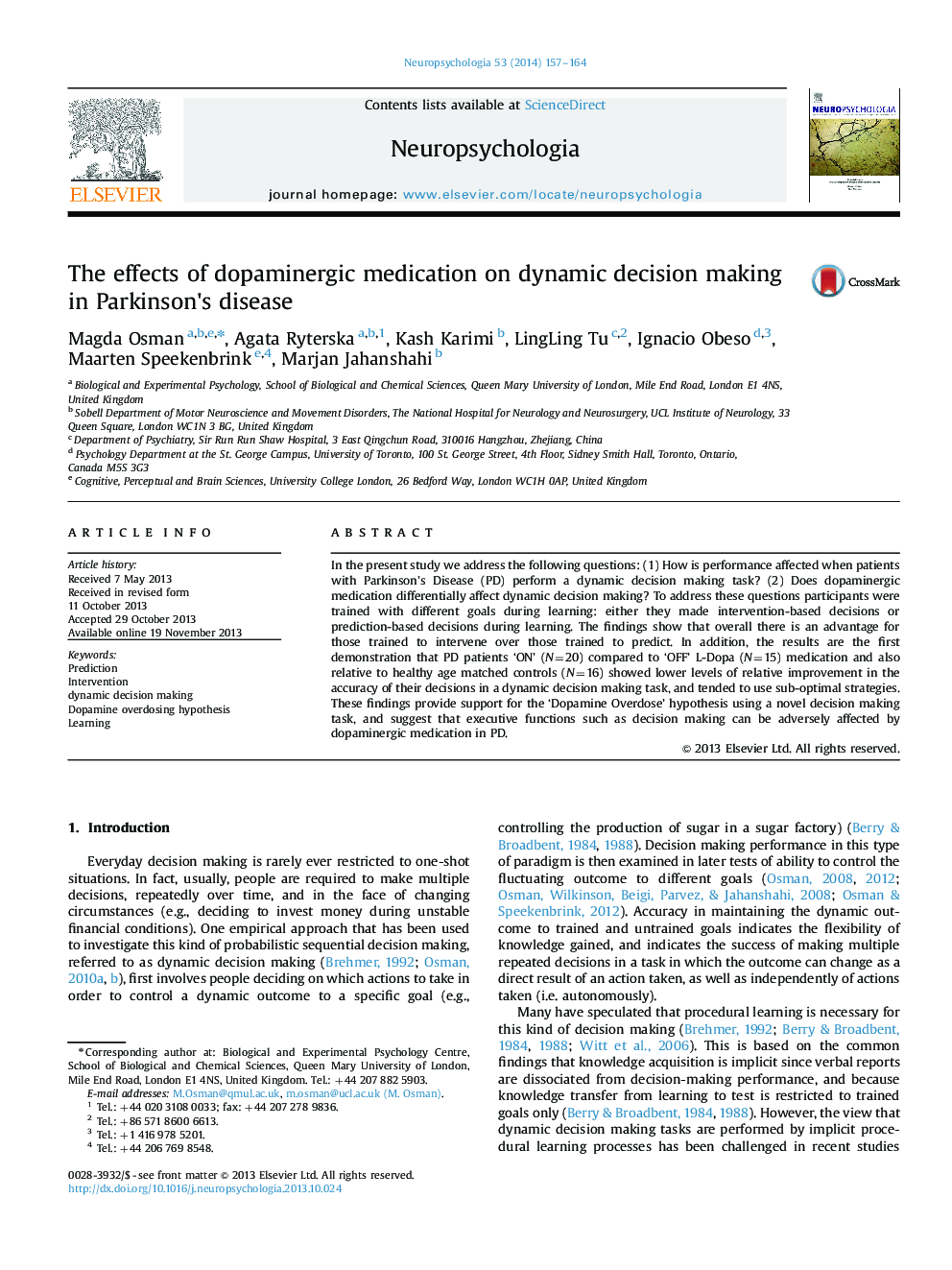| Article ID | Journal | Published Year | Pages | File Type |
|---|---|---|---|---|
| 7321977 | Neuropsychologia | 2014 | 8 Pages |
Abstract
In the present study we address the following questions: (1) How is performance affected when patients with Parkinson's Disease (PD) perform a dynamic decision making task? (2) Does dopaminergic medication differentially affect dynamic decision making? To address these questions participants were trained with different goals during learning: either they made intervention-based decisions or prediction-based decisions during learning. The findings show that overall there is an advantage for those trained to intervene over those trained to predict. In addition, the results are the first demonstration that PD patients 'ON' (N=20) compared to 'OFF' L-Dopa (N=15) medication and also relative to healthy age matched controls (N=16) showed lower levels of relative improvement in the accuracy of their decisions in a dynamic decision making task, and tended to use sub-optimal strategies. These findings provide support for the 'Dopamine Overdose' hypothesis using a novel decision making task, and suggest that executive functions such as decision making can be adversely affected by dopaminergic medication in PD.
Related Topics
Life Sciences
Neuroscience
Behavioral Neuroscience
Authors
Magda Osman, Agata Ryterska, Kash Karimi, LingLing Tu, Ignacio Obeso, Maarten Speekenbrink, Marjan Jahanshahi,
